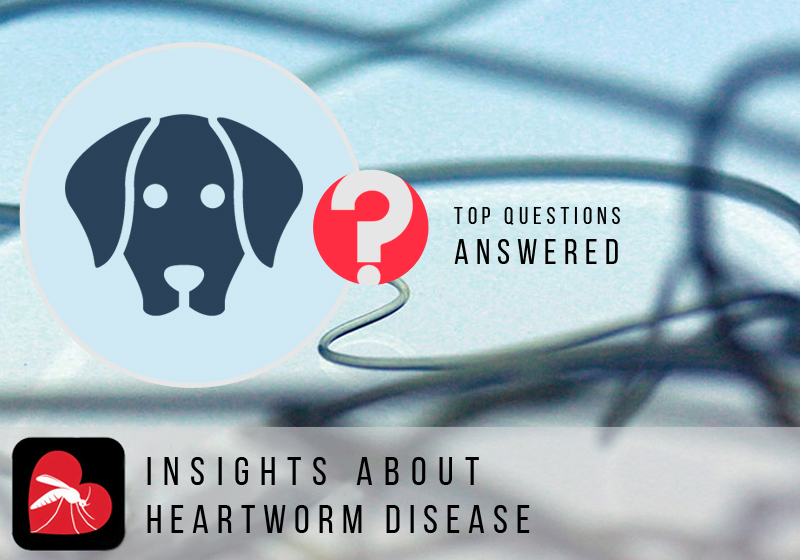Need To Know About Heartworm Disease,
Symptoms and Treatment
The threat of heartworm infection is always looming around in the minds of dog owners. It is natural to be apprehensive considering the dangerous effects of this disease on pooches. The sad part is that the treatment of this disease is not only costly, but also very painful for the tyke so the best thing that you can possibly do is to prevent this disease altogether.
Not many dog owners are aware of this deadly disease completely so for those dog owners, we have framed top questions and answers that will provide a crystal ball look at this dangerous disease:

What Is Heartworm Disease?
Heartworm disease is also known as dirofilariasis which is a very deadly disease caused by foot-long worms that reside in the heart, lungs and connected blood vessels of the affected dog. Hence, it is popularly called heartworms. This disease causes permanent damage to the heart, arteries and lungs of the dog. It can even affect the dog’s health long after the heartworms have departed.
How Is Heartworm Disease Transmitted?
It is all due to mosquitoes. Adult female heartworms reside in an infected dog and produce microscopic baby worms called microfilaria that travel in the bloodstream. Whenever a mosquito bites the infected dog and sucks his blood it picks up these baby worms. Then when the infected mosquito bites another dog the infected larvae gets deposited on the surface of the animal’s skin ad enter the new host through the bite wounds. The worst part is that the heartworms can reside inside their host for 5-7 years which means that with every passing season the chances of getting infected by heartworm increases in dogs.
What Are The Signs & Symptoms Of Heartworm Disease?
During the early stages of the disease, there are very few to no apparent symptoms in the infected dog. But the longer the infection persists the more pronounced the symptoms become. There are four major types of categories according to which the symptom severity of the disease can be gauged:
Class 1: No symptoms except for mild cough
Class 2: Coughing, fatigue and weight loss may occur, but there is still no sign of heart failure
Class 3: Incessant tiredness and coughing, trouble in breathing, liver problems along with the occurrence of congestive heart failure
Class 4: On top of the symptoms enumerated in Class 1, 2 & 3 dogs may also experience liver failure, low blood pressure, shock and death.
How Can Heartworm Disease Be Prevented?
Heartworm prevention is very easy, cost-effective and extremely safe for dogs. The great news is that the annual cost of preventing heartworm is roughly 1/5th the cost of treating it. There are lots of heartworm preventative treatments available in the market that are even effective against other intestinal parasites like Advantage Multi (Advocate), Nuheart, Revolution and Sentinel Spectrum.
How Is Heartworm Disease Treated?
Treating heartworms can be easy or difficult depending on the severity of the infection. If the infection is mild, then a series of injections can kill the heartworms inside the dog’s body. But if it is a severe infection, then surgery may be the only resort to get rid of the worms. Conduct heartworm test first of all and if the results are positive contact your veterinarian immediately to start the diagnosis. Even after the disease has completely healed ensure that your pooch gets regular exercise because due to heartworm infection, there is permanent damage to the heart and lungs of the doggy and so the more severe the symptoms, the less active your doggy will be.
Were you aware of these things about heartworm disease earlier? Please let us know your views about heartworm disease by posting it in the comments section and keep reading our blogs!
